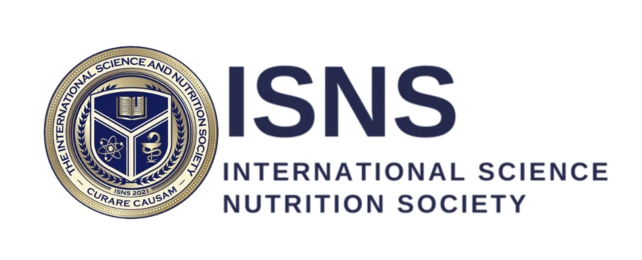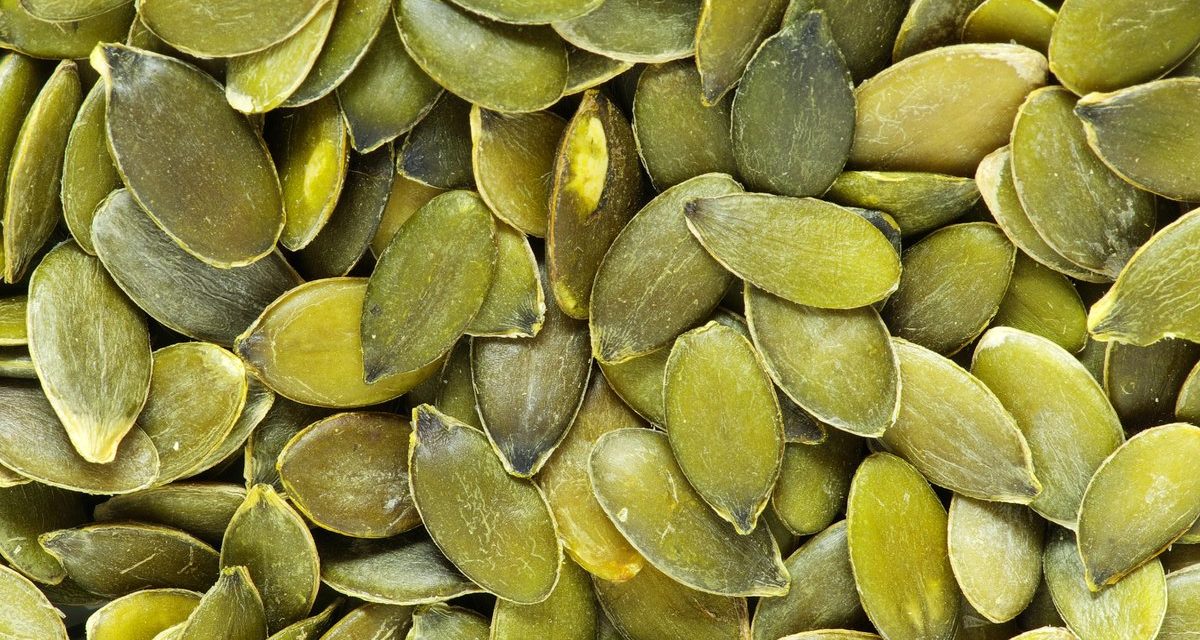Pumpkin Seeds
Top Benefits
Pumpkin seeds may be small in size, but not in the amount of nutrients they provide. Eating only a small amount can give your body lots of magnesium, zinc and healthy fats. Pumpkin seeds have, among others, these top benefits:
- Contains heart healthy magnesium and omega-3 fats
- Promotes liver health
- Has anti-diabetic effects
- Acts as an anti-inflammatory
- Helps to support the immune system
- Promotes prostate health
- Helps provide restful sleep
- Benefits postmenopausal women
Overview
Pumpkin seeds are also known as pepitas. They are the flat, oval-shaped seeds of a pumpkin or a squash discovered by archaeologists in the caves of Mexico dating all the way back to 7,000 B.C.
Pumpkin seeds usually come with their shell attached, especially since they are commonly eaten after being roasted. However, they can be shelled and the inner germ can be a great, healthy snack as well.
There are some surprising benefits of pumpkins seeds as well. As noted seed nutrition expert and research scientist, Dr. Christina Cook states, “I spent a great deal of time in the biotech industry where we worked with stem cells. Pumpkin seed stem cells are an area that is getting increased attention due to the potential benefits to the cells in the body in multiple areas like blood cell health.”
So how do pumpkin seeds create in terms of nutrition? Considered to be of the best natural sources of magnesium, pumpkin seeds are often sought after in western countries where people tend to be magnesium deficient. In the United States, almost 80% of adults take in less magnesium than the recommended daily amount. Magnesium is important for more than 600 chemical reactions inside our bodies, including:
- Forming and keeping bones healthy
- Regulating blood sugar
- Reducing heart disease
- Controlling blood pressure
One of the most common reasons people eat pumpkin seeds is that they have anti-inflammatory properties. This can be especially helpful for people who suffer from arthritis pain.
Pumpkin seeds have also been shown to have anti-parasitic qualities. They have traditionally been used to get rid of tapeworms and parasites in the body. Children are the most susceptible to worms, and pumpkin seeds can provide an excellent line of defense.
Nutritional Information
Pumpkins seeds contain many antioxidants, proteins and omega-3 acids, as well as potassium, Vitamin B2 and folate. There are about 150 calories, mainly from fat and protein, in 1 ounce of pumpkin seeds (without the shell).
A 1-oz serving contains:
Fiber: 1.7 grams.
Carbs: 5 grams.
Protein: 7 grams.
Fat: 13 grams (6 of which are omega-6s).
Vitamin K: 18% of the RDI.
Phosphorous: 33% of the RDI.
Manganese: 42% of the RDI.
Magnesium: 37% of the RDI.
Iron: 23% of the RDI.
Zinc: 14% of the RDI.
Copper: 19% of the RDI.
Wellness
Sleep
Turns out that pumpkin seeds are a natural source of tryptophan, an amino acid that can help promote sleep. If you consume about 1 gram of tryptophan daily, or about 7 oz (200 grams) of pumpkin seeds, it may have help to improve sleep.
Pumpkin seeds are also a great source of zinc. Zinc helps to convert tryptophan to serotonin, which is then changed into melatonin, the hormone that helps regulate your sleep cycle. If you have trouble falling asleep at night, you may want to eat pumpkin seeds right before you go to bed.
In addition to zinc, pumpkins seeds are also an excellent source of magnesium. Having the right levels of magnesium in your body have also been associated with better sleep.
Hair Growth
Several studies tell us that pumpkin seed oil helps hair growth in men. Having low levels of androgen are believed to cause hair loss problems, and pumpkin seed oil increases those levels in men. If you eat about a handful of pumpkin seeds a day, it can be beneficial for hair growth.
Conditions
Heart Health
Pumpkin seeds are a great source of several ingredients that can help keep the heart healthy. They’re chock full of antioxidants, magnesium, zinc and fatty acids— all which aid in heart health. But it’s the phytosterosis and omega-3 fatty acids in particular that can help prevent blood clots and atherosclerosis, which help reduce the risk of having a stroke or a heart attack.
Animal studies tell us that the oil from pumpkin seed can help reduce blood pressure and high cholesterol levels — two risk factors for heart disease. A human study involving 35 postmenopausal women over a 12 week period found that pumpkin seed oil reduced blood pressure by 7% and increased the “good” HDL cholesterol by 16%.
Other research points to the nitric oxide enzymes in pumpkin seed oil as having very positive effects on heart health. It helps expand blood vessels and improve blood flow to the heart, while also reducing artery plague.
Prostate and Bladder
Many men suffer from benign prostatic hyperplassia, or BPH, which causes the prostate gland to enlarge and can cause issues with urinating. Several studies found that eating pumpkin seeds helps to reduce the symptoms of BPH. In fact, in a study of over 1,400 men who consumed pumpkin seeds over one year, they reported less symptoms and overall better quality of life.
There is also research that suggest pumpkin seeds can help to treat an overactive bladder. In one study involving 45 men and women, both groups saw improved bladder function after taking 10 grams of pumpkin seed extract a day.
Cancer
If you have a diet rich in pumpkin seeds, you may be able to reduce your risk for several different types of cancer. Among them are lung, prostate, colon, stomach and breast cancer.
One large observational study found a reduced risk of breast cancer in postmenopausal women. While another study suggested that the lingans in pumpkins seeds play an important role both in the prevention and treatment of breast cancer. Several test-tube studies found that a supplement containing pumpkin seeds had great potential to slow down and inhibit the growth of prostate cancer cells.
Diabetes
Many people with diabetes struggle to control their blood sugar levels. However, several studies have shown that adding pumpkin seeds, pumpkin juice, pumpkin seed powder or pumpkin itself to your diet can reduce blood sugar levels in people with type 2 diabetes.
Pumpkin seeds are high in magnesium, which may be partly responsible for the positive effect it has on diabetes. An observation study of 127,000 men and women found these interesting results. When men had diets rich in mangnesium, they had a whopping 33% lower risk of type 2 diabetes. Women had a 34% lower risk.
Arthritis
Pumpkin seeds are a rich source of antioxidants like vitamin E and carotneoids. One of the great things about antioxidants is that they can reduce inflammation and protect cells from free radicals that can cause harm to the body. Consuming foods rich in antioxidants can help protect against many different diseases, including arthritis.
In one study, the inflammation found in rats with arthritis was reduced when they were given pumpkin seed oil. Rats that were given anti-inflammatory drugs had negative side effects, but the rats who consumed pumpkin seed oil had no side effects.
Blood Pressure
Pumpkin seeds contain a high level of copper. Copper can help to increase blood cell count and improve the passage of blood through the blood vessels. That, combined with the fact that pumpkin seeds also have a low-sodium content, means they can help to improve heart health by reducing blood pressure.
Kidneys
Because they have both antioxidant and diuretic properties, pumpkin seeds help to reduce toxins in the body. They also help us by stimulating circulation and increasing both the liver and kidney functions. Pumpkin seeds aid in removing uric acid and other toxins from our body so they don’t develop into dangerous kidney stones.
Osteoporosis
One of the reasons pumpkin seeds have become so popular is because of the effect they have on osteoporosis. Studies tell us that regularly eating pumpkin seeds can reduce bone weakness and other symptoms of the disease. Pepitas also have high levels of copper, zinc, calcium and other minerals that are linked to increased bone density.
Usage
Side Effects
Most people eat pumpkin seeds in moderation without experiencing negative side effects. You can eat raw or roasted pumpkin seeds and shells. You can also eat hulled pumpkin seeds. Both are available at natural food stores and many grocery stores.
Pumpkin seed shells are chewy. Their edges may also become sharp during chewing. If you have any difficulty chewing food or swallowing, you may want to stick to eating hulled varieties. Pumpkin seeds are high in fiber. One cup contains almost 12 grams. If you eat too many, you may experience gas and bloating. Fiber helps bulk up stool and prevents constipation in the long run, but eating a lot of pumpkin seeds at once may actually cause constipation.
As you snack on pumpkin seeds, keep in mind they’re high in calories and fat. One cup contains around 285 calories and 12 grams of fat. Regularly eating too many may cause weight gain.
Interactions
Pumpkin seed is mildly diuretic, which means it could be an issue for people who take lithium. Eating a large amount of pumpkin could make it more difficult for the body to clear lithium, possibly leading to drug-related side effects. Just because something has pumpkin in its name, like pumpkin spice latte for example, doesn’t mean it actually has any of the health benefits of eating pumpkin or pumpkin seeds. While a pumpkin pie may have some extra vitamins, fiber and minerals, they tend to also have lots of sugar and refined carbs.
Dosing
There isn’t a standard recommended dosage of pumpkin seeds, but many doctors recommend eating a handful daily for general health benefits.
In one study, scientists found that 100 grams of pumpkin seeds contained 90.69 milligrams of magnesium. The Office of Dietary Supplements recommends that men 19 to 30 years old should have 400 mg of magnesium a day. Women should have 310 mg daily, or 350 mg during pregnancy. Older people should have a slightly higher intake.
Research
General Information and Overview
Sleep
Hair Growth
Heart Health
Prostate and Bladder
http://www.urologyhealth.org/urologic-conditions/overactive-bladder-(oab)
Cancer
Diabetes
Arthritis
Blood Pressure
Kidneys
Osteoporosis

